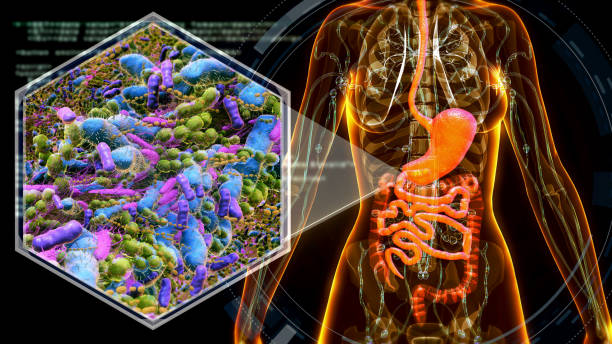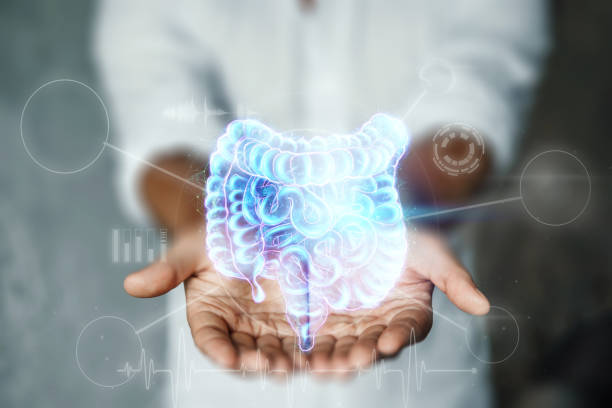Gut Microbiome
Have you ever had thoughts about the numerous little beings that reside in your gastrointestinal tract? Now, the gut microbiome a diverse community of microorganisms inhabiting the human gastrointestinal tract is raising the interest of scientists and ordinary people. This silent world of bacteria, fungi, and other forms of microscopic organisms is very important to our total health. This article is all about explaining the gut microbiome and getting to know those tiny friends that help our body.

The Gut Microbiome: A Hidden Universe
There are over ten times as many microorganisms that inhabit our digestive system, a group known as the gut microbiota. These bacteria, viruses, and fungi are not our strangers, as they inhabit our bodies and have been living along with us for thousands of years. The gut microbiome is as individual to a person as is their fingerprint and may be altered based on the presence of different factors, including diet, lifestyle, and environment of an individual.
It is with the birth of every individual and in the course of our existence that the gut microbiota is built. Just like the human body, as we age and experience hormonal changes, so does our microbiome. This is a very active field of study because the composition of the microbiota population in the gut is always changing and more and more is being learned about the effects on health.
The Good Guys: Types of Organisms in the Gut Microbiota
When speaking of bacteria, most people will think about the germs that cause diseases, whereas many bacteria living in the human body are helpful. These “good” bacteria play essential roles in various bodily functions, including:
Digestibility and in-situ nutrient availability
The gut flora plays an essential role in the digestion of sugars, starches, and fibers that are awful for the human body to digest. This process is also beneficial in enhancing nutrient intake into our bodies from the food we consume, and DK aids the digestive system of the body.
Immune System Support
The gut is also home to about 70% of our immune system, and our microbiome directly contributes to this aspect of the body. This ‘’education’’ of our immune system is essential in order to avoid type 2 allergies and autoimmune diseases.
There is a very close connection between somebody’s mental health and the gut-brain axis.
Therefore new studies have established the link between the internal environment of a digestive system and the brain known as the gut-brain axis. Probiotics introduce friendly bacteria and other microorganisms within our bodies that interact with the synapses of the brain and affect the hormones, chemicals, or neurotransmitters that impact how we feel or behave. These studies implying bidirectional communication between the gut and the brain bring focus on our gut microbiomes’ influence on mental health and neurological diseases.
Principles of Metabolism and Weight Control
There has been evidence to support the theory that some strains of microbes in the gut have a negative correlation with obesity, while other types do the opposite. Recognition of these relationships might create new methods of approaches to weight and metabolic problems.
Nurturing Your Gut Microbiome: Information about Healthy Bacterial Balance
The equation of gut bacterial ecology is essential for human health and well-being. Here are some ways to support your internal microbial ecosystem:

Caution for Symptoms of Dog or Cat Food Intolerance or Allergy
Eating foods of plant origin in their diverse forms supplies energy to the good bacteria that live in the gut. Many fruits, vegetables, whole grains, and legumes are rich in a type of fiber that feeds our gut microbes.
Avoid consumption of processed foods and foods high in added sugars.
Saturated foods and added sugars are also undesirable since they distort the composition of the favorable bacteria in our digestive system. Choosing intact, processed-less foods can go a long way toward keeping the microbial environment healthier.
How to buy probiotic supplements
In some situations, probiotic supplements are useful in maintaining gut health. However, if you are thinking of adding these to your routine, it is wise to consult your doctor first given that there are different needs of different people.
Control Stress and Act on Sleep
Stress is detrimental to health, including the gut microbiome, as can be evidenced by poor quality sleep. It is possible to regulate the levels of the bacteria by practicing stress control activities such as meditation or doing yoga workouts and by embracing quality sleep.
With the exciting discoveries into the composition of the gut microbiome comes the potential to enhance human health. Scientists are exploring innovative ways to harness the power of our microbial allies, including:
Personalized Nutrition
Science is coming up with ways to diagnose a person’s gut microbiome so that the right dietary advice can be provided depending on what the results see from the person’s gut bacteria.
Microbiome-Based Therapies
It has been suggested that the set of targeted probiotic strains, or the microbial-based therapies, could provide novel approaches towards diverse health difficulties, including those associated with gastrointestinal pathology as well as neuropsychiatric disorders.
Early Disease Detection
Fecal samples may act as markers of the early stages of a particular disease since the volume and composition of the gut microbiota change under the influence of the disease. Supervising such biome changes of the microbes could vaguely result in timely diagnosis and early treatment corresponding to these health disorders.
Conclusion
The human gut microbiome is a diverse and intricate microbial community that has a huge bearing on our health and physiological processes. With this concept in mind and with proper cultivation of the internal microbial population, we may enhance several aspects of our health, including the digestive organ function, cognitive state, mood, and so on. As further work is conducted in this area, perhaps a new paradigm for disease prevention and management based on the promised potential of the gut microbiome might be found.
FAQs
The time one takes when transitioning from the old gut microbiome to a new one varies depending on the cause of change.
One feels it is safe to advocate that the gut microbiome can start responding to the changes in dietary habits within the days. However, achieving a desired structured and sustained change in the microbial community may require weeks to months of frequent, consistent dietary and lifestyle manipulations.
